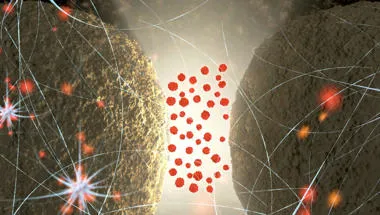
Dr James Stone MBBS, PhD, FRCPsych
Clinical Senior Lecturer
Research interests
- Neuroscience
Contact details
Biography
My research aims to understand the role of brain chemistry in mental illness and to identify different subtypes of Illness that might show different responses to drug treatments. In particular I am interested in how differences in brain glutamate levels may predict response to antipsychotic drugs and antidepressants. I am also involved in research on the gut microbiome and it's role in depression and anxiety, as well as on ketamine and psilocybin in the treatment of depression and post-traumatic stress disorder (PTSD). My research encompasses a variety of methods including clinical trials, magnetic resonance imaging (MRI) imaging and psychological testing.
Please see my Research Staff Profile for more detail
Key publications:
- Stone et al., 2007. Glutamate and dopamine dysregulation in schizophrenia—a synthesis and selective review. Journal of Psychopharmacology.
- Stone et al., 2012. Ketamine effects on brain GABA and glutamate levels with 1H-MRS: relationship to ketamine-induced psychopathology. Molecular Psychiatry.
- Egerton et al., 2012. Anterior cingulate glutamate levels related to clinical status following treatment in first-episode schizophrenia. Neuropsychopharmology.
Research

STRATA - Schizophrenia: Treatment Resistance and Therapeutic Advances
People with schizophrenia suffer from a range of symptoms including hallucinations (such as hearing voices), delusions (false beliefs) and thought disorder (thoughts not flowing in a logical way).
News
New data demonstrates potential role of probiotic supplementation in adults with major depressive disorder
New research led by the Institute of Psychiatry, Psychology & Neuroscience (IoPPN) at King’s College London, in partnership with ADM Protexin, has shown...

Research

STRATA - Schizophrenia: Treatment Resistance and Therapeutic Advances
People with schizophrenia suffer from a range of symptoms including hallucinations (such as hearing voices), delusions (false beliefs) and thought disorder (thoughts not flowing in a logical way).
News
New data demonstrates potential role of probiotic supplementation in adults with major depressive disorder
New research led by the Institute of Psychiatry, Psychology & Neuroscience (IoPPN) at King’s College London, in partnership with ADM Protexin, has shown...

